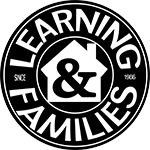Thursday
We are so grateful to have an awesome high school math facilitator this year at LAF. However, she is also our beloved K – 3 Art facilitator! That’s why traditional High School Math Classes are being held on Tuesdays with our Project-Based Learning classes. To see a list of our High School Math Classes, please click here.
- why they want to take the class
- in what ways they will demonstrate maturity and commitment
Middle/High School Co-op (does not include lab/supply fees)
Prices below are the annual tuition costs for each individual 2025/26 class.
One-semester classes are half the price.
Tuition price based on payment date
- by 5/31/2025 = $300
- by 6/30/2025 = $325
- by 7/31/2025 = $350
- by 8/31/2025 = $375
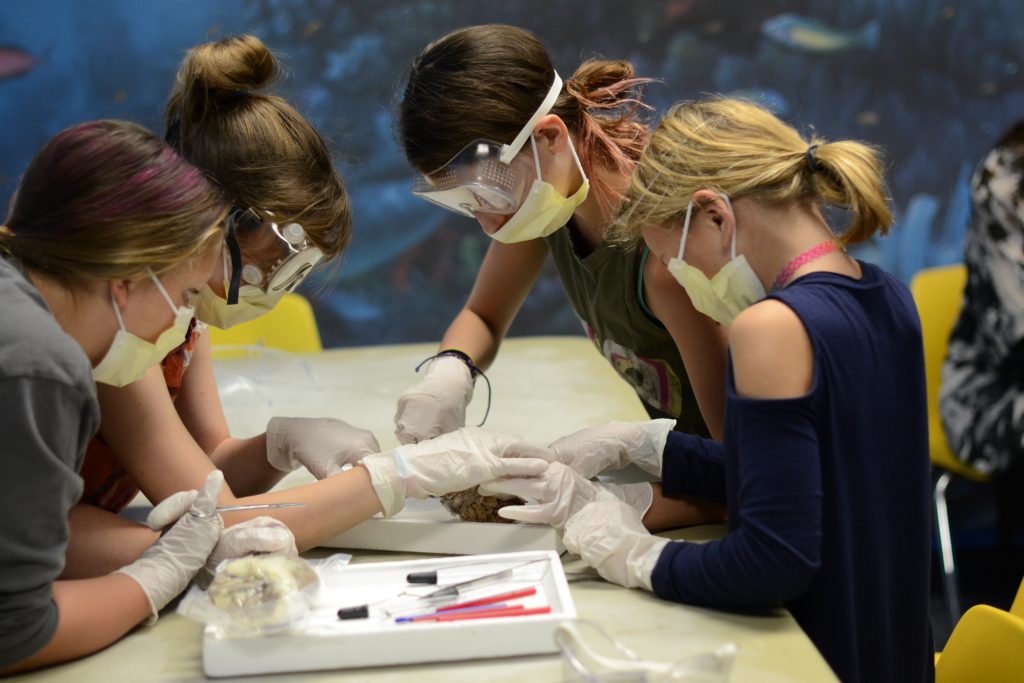
Supply/Lab Fees
There is a one-time $25 Co-op registration fee for each student taking one or more classes.
Be sure to note the supply fee for each class. These differ from class to class and will be listed beneath the class description here on the website. These fees are automatically added to the tuition cost for each class in the Parent Portal, where you pay for classes after your Co-op application has been approved.
All registration and supply fees are due in full by July 15, 2025 to hold a student’s spot in class.
Below is our list of High School Co-op Classes for the 2024/2025 school year. Next to each class, we have listed the facilitator for the class, the day, time, and location of the class, the course description, and the required materials and additional lab/supply fees.
Click here to meet our Middle and High School Facilitators.

Room G 322
Course Description
- cell structure and processes
- genetics
- classification and studies of each Kingdom
- discussion of ethical issues from a Biblical worldview.
Lab activities include microscope examinations, microbiology culture, and dissections.
Required Materials

Required Materials
- Discovering Design with Chemistry by Dr. Jay Wile
- Pencils
- A notebook for class notes and homework (or two separate notebooks if desired)
- Carbonless laboratory notebook (may find on Amazon)
- Scientific Calculator (i.e. TI-30X IIS or better recommended)
Lab Fee
This course is created using the Discovering Design with Chemistry textbook by Dr. Wile. It is considered an honors course, and students will need to have completed Algebra 1.
- Newton’s Laws of motion and mechanics (motion, forces, work/energy, and momentum)
- Periodic motion / waves (sound, light, and optics)
- Electromagnetics (electrical current and magnetism).
These scientific concepts will be integrated with their mathematical application to give students an increased level of understanding of their physical world.
Students will be responsible for completing mathematically based homework assignments that will reinforce the scientific concepts and examples that will be tested and demonstrated during our weekly class sessions. Other student requirements include
- lab journals
- quizzes
- mid-term
- final exam
- class participation
Required Materials:
- Discovering Design with Physics by Dr. Wile (Textbook AND Answer Key and Tests booklet)
- Carbonless Laboratory Notebook – available on Amazon
- Notebook for class notes and homework (or two separate notebooks if desired)
- Scientific Calculator (i.e. TI-30X IIS or better recommended)
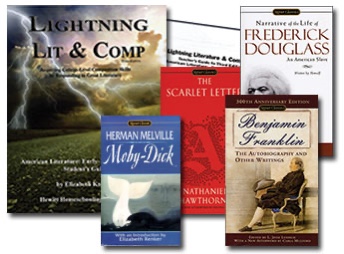
Course Description:
This course is a high school college-preparatory literature and writing course designed with Hewitt High School Lightning Literature and Composition guides. Hewitt’s Lightning Literature guides provide lessons in literature that will help your student’s reading comprehension, love of books, and their writing as well.
For this course, students read eight unabridged books along with short stories, poems, and other shorter literary works that are included within the student guides.
Required Materials:
(1 st semester)
- Lightning Lit. & Composition: American Literature Early-Mid 19 th Century Student Guide
(2nd semester)
- Lightning Lit. & Composition: American Literature Mid-Late 19 th Century Student Guide
- 8 Unabridged novels (see below for details)
- 3 subject spiral notebook
1st Semester Novels:
- Benjamin Franklin (nonfiction: Autobiography)
- Frederick Douglas (nonfiction: Narrative)
- The Scarlet Letter, by Nathaniel Hawthorne
- Moby Dick, by Herman Melville
2nd Semester Novels:
- Uncle Tom’s Cabin, by Harriet Beecher Stowe
- Huckleberry Finn, by Mark Twain
- The Red Badge of Courage, by Stephen Crane
- The Call of the Wild, by Jack London
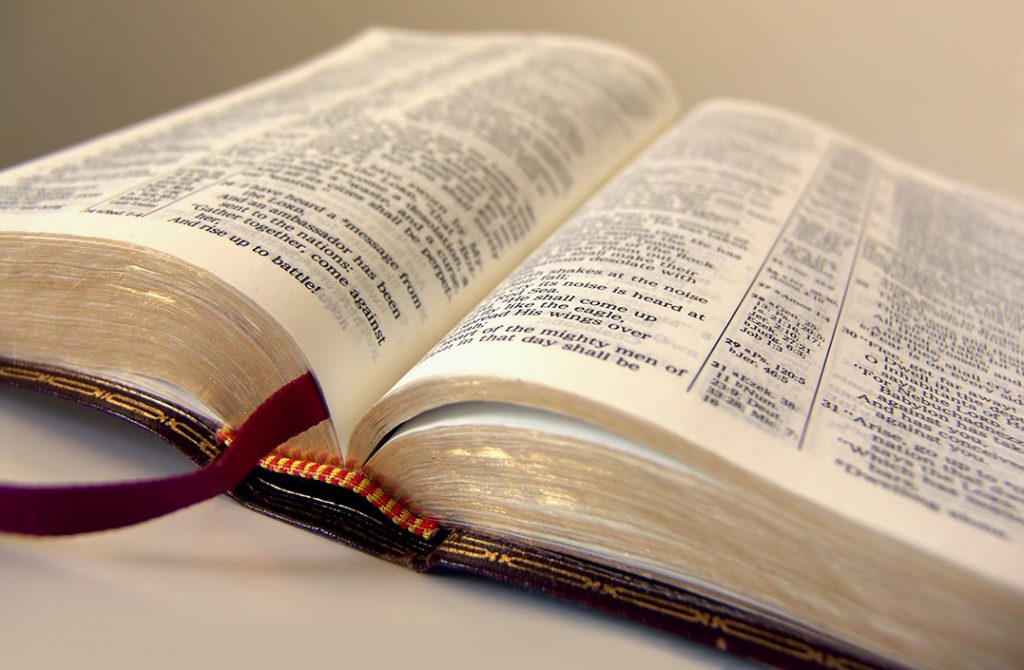
Course Description:
This course is a high school college-preparatory literature and writing course designed with Hewitt High School Lightning Literature and Composition guides. Hewitt’s Lightning Literature guides provide lessons in literature that will help your student’s reading comprehension, love of books, and their writing as well.
For this course, students read seven unabridged books along with short stories, poems, and other shorter literary works that are included within the student guides.
Required Materials:
- Lightning Literature and Composition: British Early-Mid 19th Century Student Guide
- Lightning Literature and Composition: British Mid-Late 19th Century Student Guide
- Pride and Prejudice, by Jane Austen
- Ivanhoe, by Sir Walter Scott
- Frankenstein, by Mary Shelley
- Jane Eyre, by Charlotte Bronte
- Silas Marner, by George Eliot
- Great Expectations, by Charles Dickens
- The Importance of Being Earnest, by Oscar Wilde
- 5 subject spiral notebook
Supply Fee:
Course Description
- poetry
- short stories
- persuasive writing essays.
During this class students will also be writing their own children’s book using the learned methods of creative writing.
Required Materials
- Notebook
- Project organizer
- Colored pencils
- Pencils/pens
- Sketchbook
Supply Fee
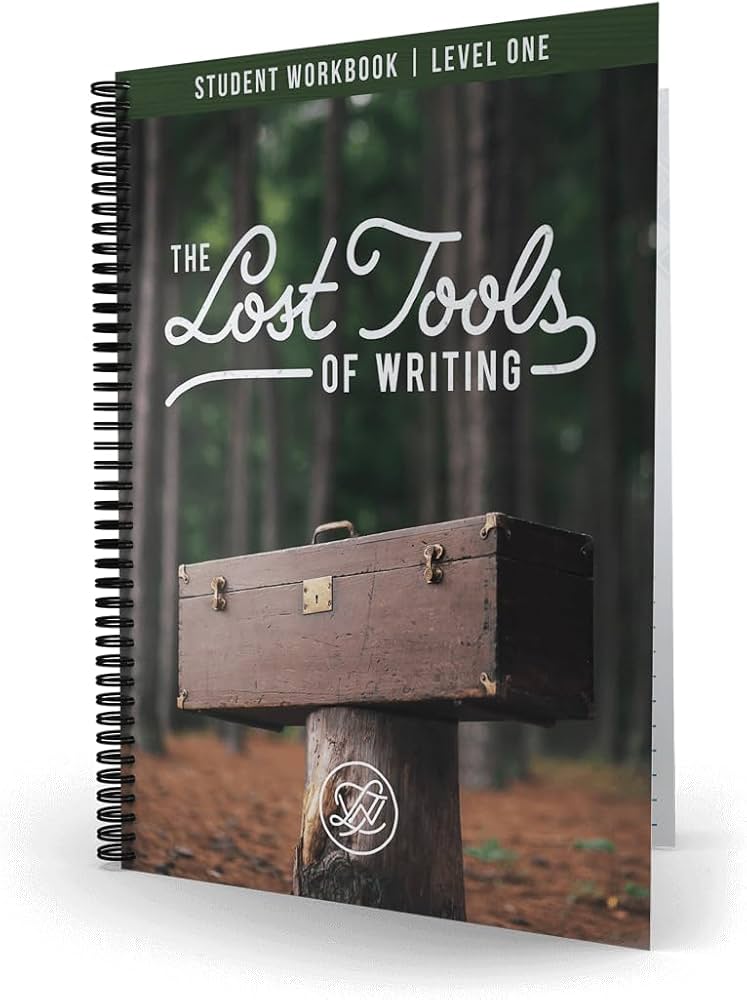
Required Material
- Lost Tools of Writing Level One Teacher Manual
- Lost Tools of Writing Student Workbook (Please Note: A Student’s Workbook must be purchased for each student who will use the program. Per copyright rules, worksheets may not be photocopied.)
- Lined notebook
- Pen
Supply Fee


Course Description
1st semester: Philosophy
Dive into history of Philosophy and evaluate the ideas that shaped our world through a Biblical worldview.
We will create a class timeline of the philosophers and human thought, adding familiar historical events as we go. Students will learn how to study by highlighting and annotating their books to help them retain more information for class discussions.
2nd semester: Poetry
This clear and imaginative introductory course makes poetry approachable. In the world where everything and everyone is rushing and attention spans are forever waning, you will find your student attending to details and finding time to be still, and observe the beauty and wonder of the world around us.
We will learn to analyze great poetry throughout history and write our own original pieces through fun exercises and activities. We will continue using annotating skills learned in the first semester and will continue adding to the timeline.
Each student will create his own collection of poetry and will learn tools of poetry analysis, as well as recite poetry in several Poetry cafes.
- Consequences of Ideas by R.C. Sproul (1 semester)
- The Roar on the Other Side by Susanne Rhodes. (2 semester)
- Lined notebook
- Pen
- Fun Pens (poetry)
- Highlighters
Supply Fee
$10 per student
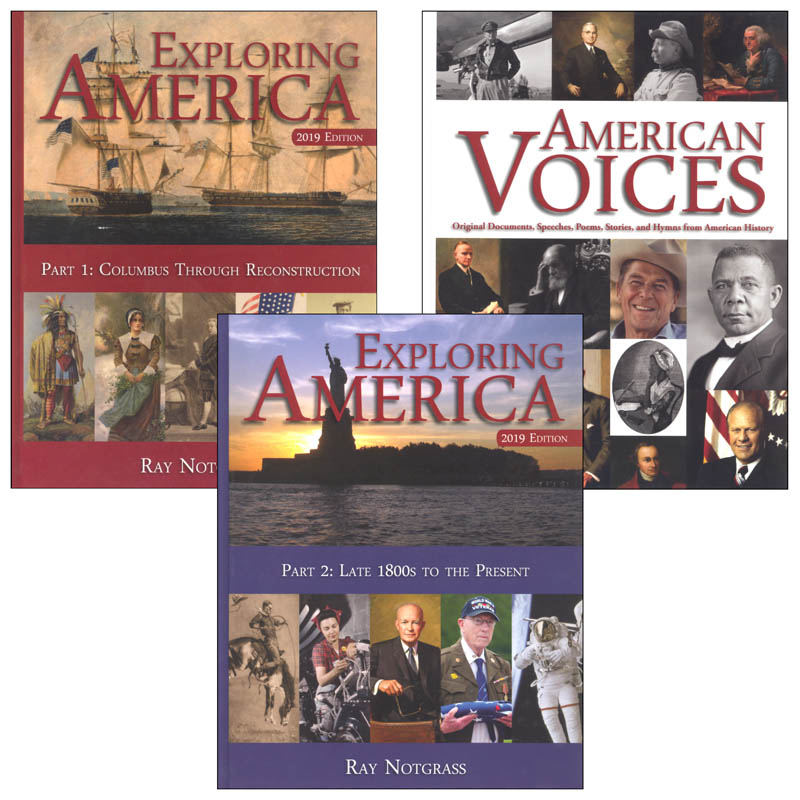
This course is created using the Notgrass Exploring America history curriculum. As we go through American history from the early 1400s to present day, the students will learn that history has a direct influence on our lives today. The students will have a Bible-based history class that will delve into inspiring stories of people who have acted on their faith and made great strides for our country. Students will have the opportunity to go deeper on a topic of their choosing as they prepare for a class presentation each quarter.
Required Materials:
- Notgrass Exploring America: curriculum package (Part 1 & 2, and American Voices)
- Notebook
- Pencil or pen
Supply Fee:
$10 per student
This is an interactive class that will not only teach students about ancient history, but it will also teach students how to learn any history topic.
Students will watch engaging history videos to prepare for a classroom discussion topic. As they watch, they will be on the hunt for three things:
- When things happened
- Where they happened
- Who was involved
They will create a notebook with a timeline (similar to Book of Centuries), people pages, and maps.
In class, they will work in project teams to discuss their findings and fill in any information gaps.
Each month, the class will work in project teams to do a deeper dive into one topic in the unit. Each team will create a 15-minute, interactive, visually appealing presentation to teach their classmates about their topic.
Classmates will use a rubric to evaluate one another.
- 1 1/2-inch binder with the following tab dividers:
- Timeline
- People
- Maps
- 3-hole punched, 2-pocket folder
- Spiral notebook
- Pens, highlighters

This course is an examination of American politics: the constitutional basis, organization, and function of our government
Required Materials
- None

In this ONE SEMESTER economics course, students will learn about the various types of economies and how they address the various factors in the production, consumption, and transfer of wealth. Students will learn a brief economic history of the United States and other countries so as to compare the different types of economies. This will be accomplished by looking at not only individual and business economic factors but also the economy as a whole. Students will learn about the laws of supply and demand, and the importance and impact of economic policies on our economy. They will also learn how money, trade, and markets work as well as how they are measured, and so much more. There will be a mix of reading, lectures, current event discussions, and hands-on activities designed to not only teach the various topics, but make it engaging with a semester end project as well.
- Notebook
- Binder with pocket folder
- Highlighters
- Pens
- Book TBD
Supply Fee:
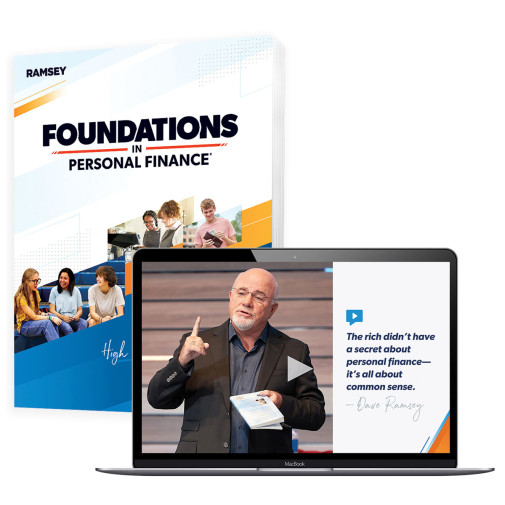
In this ONE SEMESTER financial literacy and money management course, students will learn basic money skills including budgeting, saving, and investing. They will also learn how to file taxes, pay bills, and so much more. There will be a mix of reading, lectures, and hands-on activities designed to not only teach the various subjects, but make it engaging as well.
Some topics to be covered include: banking (including balancing a checkbook), investing (real estate, CD’s, IRA’s), credit cards (positives and negatives), credit score (what is it, why is it important, and how can you protect it), paying for college (different ways to help pay for college and how to choose a college keeping the cost in mind), insurance (health, car, life, renters, and others), paying taxes (we will actually look at a 1040 form), budgeting (the how and why), and other consumer skills.
- Notebook
- Binder with pocket folder
- Highlighters
- Pens
- Foundations in Personal Finance: Homeschool Edition – Print + Streaming
Supply Fee:
$10 per student
Email Class Facilitator
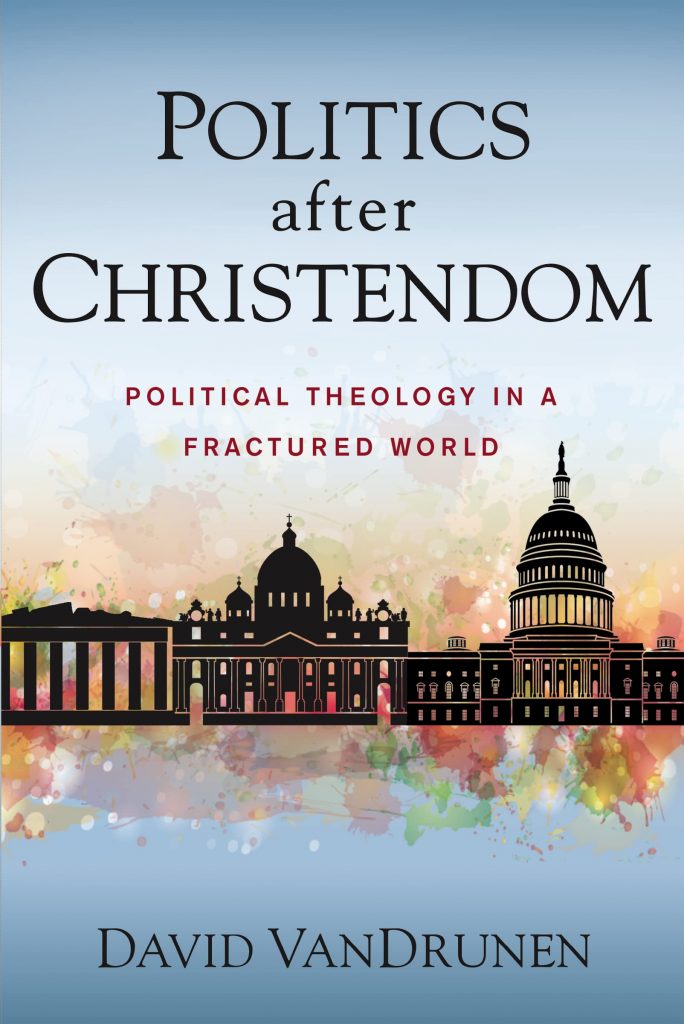
A survey of the history, theory, and practice of Christian political and cultural engagement for the common good. This class will explore the evangelical natural law tradition, and it will include case studies in biblical cultural critique along with the application of the biblical worldview for promoting the public good.
Required Materials
- Politics After Christendom by David VanDrunen
- To Change the World by James Davison Hunter
- Faithful Reason by Andrew T. Walker
- Remaking the World by Andrew Wilson

Facilitator: Miguel Benitez
This course examines the philosophical and theological principles and issues related to ethics. It addresses meta-ethical questions about the relationship between moral language and concepts and various metaphysical and post-metaphysical views; normative ethical theories; theological structures and implications of ethics; and contemporary ethical issues.
For most kids, studying means reading over their textbook and maybe their notes (if they have them) and perhaps creating some flashcards, but if we understand that studying encompasses all it takes to truly master a subject and to demonstrate mastery by scoring well on assignments, exams, projects, and papers, then the total process includes much more.
We have identified eight powerful steps of studying any material, and in this course, Jenni Stahlmann walks students through each step, with hands-on, practical lessons that they can put into practice right away.
Within this course, we have another course. The students need something to study, so this year, they will study principles of success. By reading practical and inspiring books and articles and watching TedTalks and other informative and motivating lectures, students will have material to use for study practice.
Course Includes:
- How to Pre-Learn
- How to Take Effective Textbook Notes
- How to Take Effective Notes in a Nonfiction Book
- How to Create a Master Study Guide
- How to Maxime Class Time
- How to Take Effective Lecture Notes
- How to Process Lecture Notes
- How to Integrate Textbook and Lecture Notes and Create a Concept Map
- How to Create Study Tools
- Memorization Tips and Tools
- How to Maximize Study Groups
- How to Pre-Test Yourself
- How to Take a Test
- How to Take a Timed Essay Test
- How Review Your Test
Required Materials
- Atomic Habits: An Easy and Proven Way to Build Good Habits & Break Bad Ones by James Clear
- Make It Stick: The Science of Successful Learning by Peter C. Brown, Henry L. Roediger III, Mark A. McDaniel
- A Growth Mindset for Teens: Practical Lessons and Activities to Build Confidence, Problem Solve, Grow Skills, and Become More Resilient in 31 Days (You Are Your Mindset) by Sydney Shepphard
- A Growth Mindset Workbook for Teens by Empower Teens
- Win the Day: 7 Daily Habits to Help You Stress Less & Accomplish More by Mark Batterson
- Win the Day Journal: Harness the Power of 24 Hours by Mark Batterson
- Grit: The Power of Passion and Perseverance by Angela Duckworth
Supply Fee
$15 per student
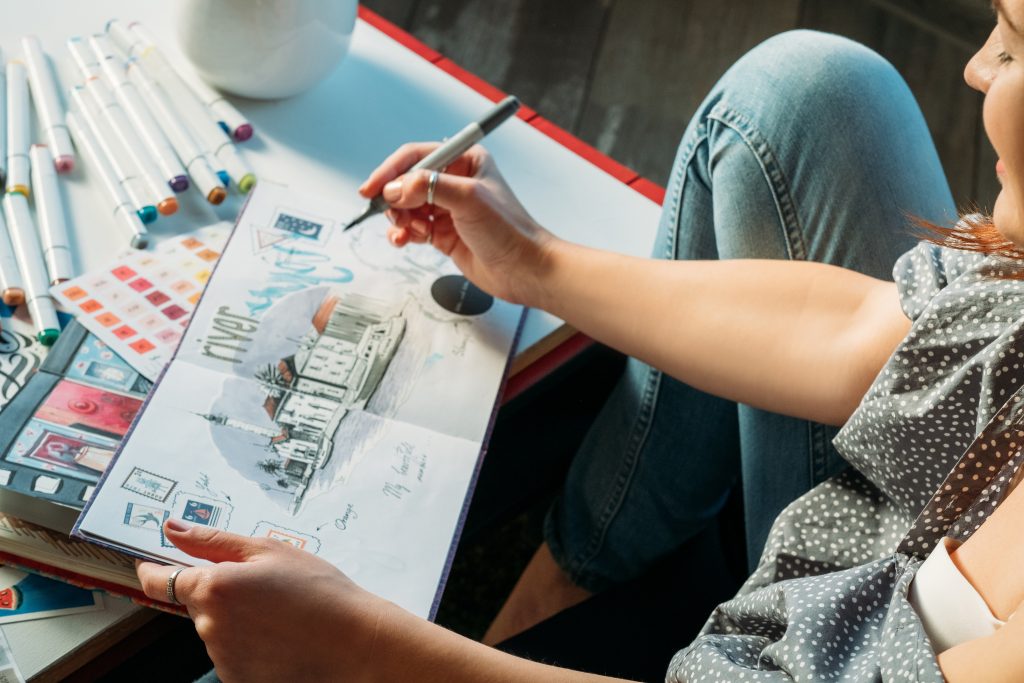
- on-site cafe sketching
- reportage illustration,
- courtroom illustration,
- plein air painting
- observational drawing of animals and everyday scenes.
Through hands-on projects, students will practice documenting their day-to-day lives and surrounding environments.
This workshop will encourage loose drawing and helping students develop their own unique sketching style and voice. By the end, students will have a visual record of their journey and enhanced sketching skills to continue building on.
- Included in supply fee
$70 per student

- Camera
- Tripod
- Lighting
- Lens
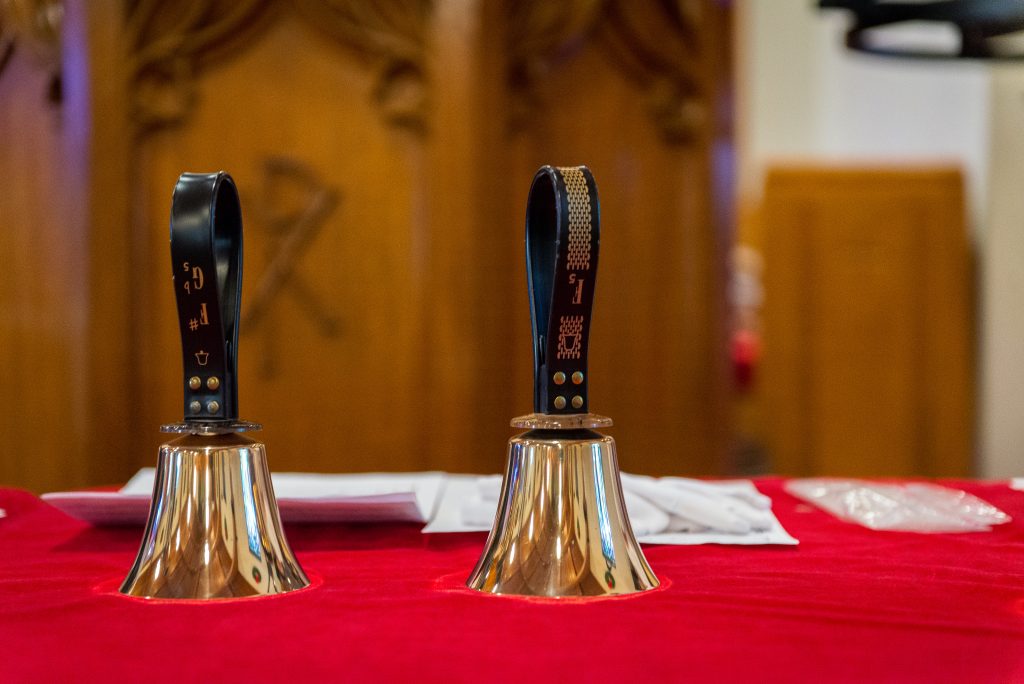
Introduction to Handbell Ringing (Middle and High School)
discipline, personal expression and self-esteem.
- Handbell gloves
- Handbells Notebook and Stand
- 2 Pencils
- 3 Highlighters (1 each of pink, green and yellow)

